This constant exposure to this aspect of the news has an impact on our feeling of security and general wellbeing about the world. Simply put: it makes us more afraid.
A growing number of experts are calling the age in which we live in the Age of Fear. Despite the fact that most people around the world are living much safer lives than in the past, more and more people are being led to focus on what might go wrong in their future.
Surprisingly, even though we as Canadians live in one of the most politically peaceful environments, studies show that this doesn’t prevent us from feeling more and more afraid about things like terrorism, economic collapse and government corruption - all of which are actually in decline in Canada.
While fear is natural and can serve us in times of crisis, real problems arise in our health and well-being when fear becomes a background noise that doesn’t serve any real purpose.
In fact, excessive fear is one of the biggest causes of stress, and can affect your quality of life, health, and wellbeing.
The Emotional Effects Of Fear
These effects occur because fear makes our brains release high amounts of cortisol, the hormone linked to stress -- which is also the main source of many of the negative physical effects related to fear. As cortisol levels spike, this produces an increased heart rate, blood pressure, plus a decreased immune response, and an overall increase in muscle tension.
Fear can also affect our feelings of self-worth. Conditions such as the "Impostor Syndrome", which is associated with low-self esteem, is motivated almost entirely by fear, and has dramatic effects on our mental health - which then also spills over to affect our sensitivity to painful physical conditions.
The Physical Effects Of Fear
Health is as a combination of physical, mental, and spiritual well-being. These three elements are interconnected and interdependent, so that if one falters, so do the others.
Although fear is an emotion, it has clear effects on our physical health. To a certain extent, this is something we know to be true on a superficial level (think of the tummy aches you get when you are anxious, or the way your hands get sweaty or shaky when the fight-or-flight responses to fear kick in).
It is interesting (but alarming) to note that fear-induced anxiety has been proven to spark cardiovascular disease, chronic pain, fibromyalgia, and TMJ (jaw) pain and dysfunction.
Fear, and the resulting tension that is caused by it, has also been linked to the incidence of vertebral subluxations - spinal dysfunctions that are linked to a number of health conditions that span from migraines to chronic hip pain.
That's why it's vitally important that you consider the source of the pain, especially if you cannot link it to a physical trauma or activity, if you’d like for the pain to be resolved completely.
When your think back to when the pain first happened, were you under more physical stress (was there anything physically traumatic or intense that happened)?
Or, was the source of pressure and stress more mental/emotional? If you agree with the latter, then look below for the potential ease and/or resolution to your pain.
Five Tips To Let Go Of Fear To Improve Your Health
1. Be Kind To Yourself
Many fears can be attributed to the acronym "false evidence appearing real”. What this means is that the feelings of fear (and the actual physical responses created by these feelings) are based on mental perceptions of ourselves or our environments, not on actual evidence.
These types of fears can be eliminated by changing the way in which we see ourselves. Being nice to ourselves - celebrating our past successes, for example - is a simple and effective way we can begin retraining our minds to boost our self-esteem and eliminate some of the internal sources of fear.
2. Face Your Fears
This doesn't necessarily mean standing at the edge of a building (if you're afraid of heights) or jumping into a snake pit (if you're afraid of snakes), but rather trying to decipher what it is about heights and snakes that elevates those cortisol levels, and doing something active to address it.
3. Take Action
In general, taking physical action is another great way to counteract the fear response. Exercising or standing in power poses can both help reduce levels of cortisol, which as mentioned earlier are linked to stress and the many mental health issues associated with fear.
4. Breathe
These studies show that activities like yoga, which are primarily focused on controlling breath, can improve the overall well-being of people struggling with their mental health, and can dramatically reduce symptoms of depression and anxiety.
The review also states that yoga can help deal with stress and post-traumatic stress disorder by reducing the quantity of cortisol – a hormone linked to stress and depression – in the body.
5. Get Help
When this is the case, reducing that pain can be effectively accomplished by addressing the emotional causes of fear and stress, or by addressing the tension and imbalance that consequently shows up in the body.
With our understanding of the mind-body connection, the practitioners at Back2Health are ideally suited to deal with both. Give us a call today - we’d love to help.

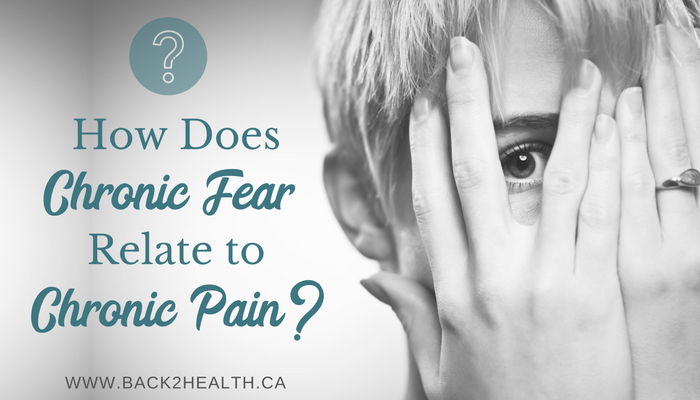
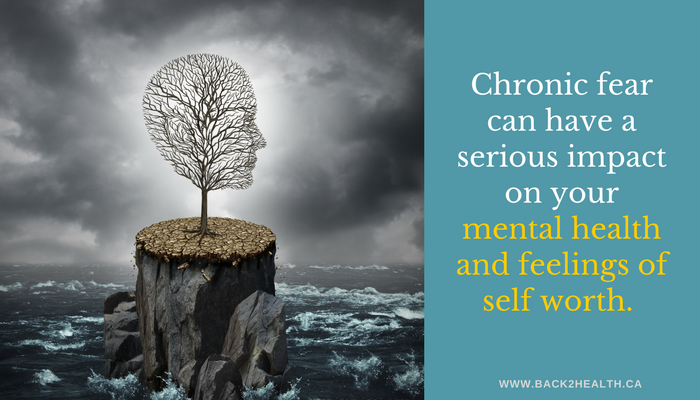



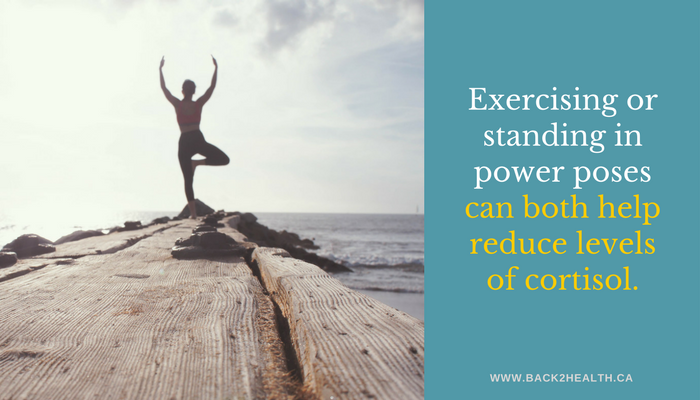
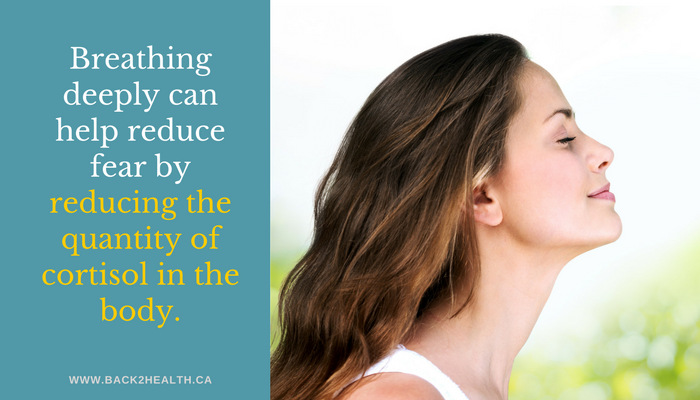
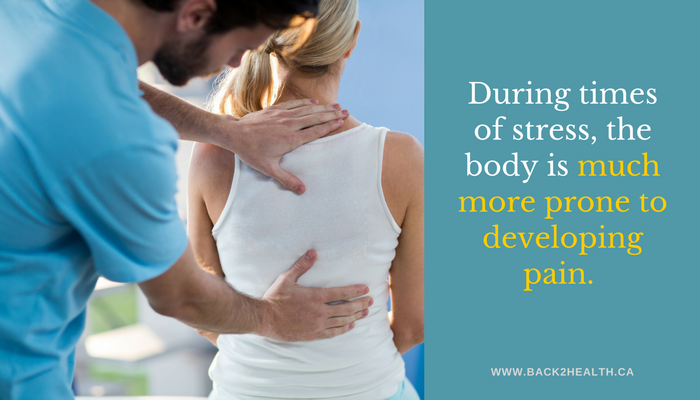
 RSS Feed
RSS Feed
